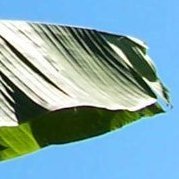Farmers taught to cope with soil salinity
-
Recently Browsing 0 members
- No registered users viewing this page.
-
Topics
-
Popular Contributors
-
Latest posts...
-
7
Russia is toast no matter the outcome of the Ukraine invasion
Since the early 1990s, Russia has decided to follow the path of the West. Since 1993, according to the Russian constitution, the most important thing is human rights and not the rights of society. Just like in Western countries. Therefore, a woman's right to give birth to 1 child only for herself had become more important than the right of society to get 2-3 children from each woman in order to survive. The same situation is in all Western countries that are trying to clumsily cover up the demographic catastrophe by importing migrants from Muslim countries. Muhammad's wife gives birth to 6 children precisely because her husband doesn't give a damn about human rights. The worst situation in the world is in South Korea, where the lowest birth rate per woman is 0.8 children. In North Korea, everything is fine - 2 children per woman. All because Kim doesn't give a damn about such harmful Western inventions as Human Rights. -
0
THAILAND LIVE Thailand Live Thursday 1 May 2025
Cannabis Warning for Britons in Thailand: Leave It Behind or Risk Jail Pictures courtesy of The Phuket News British tourists basking in Thailand's sunny embrace received a reminder with serious consequences—bringing cannabis back to the UK could lead to jail time. This stark warning was delivered by British Ambassador to Thailand, Mark Gooding, during his visit to Phuket on April 28th. Full story: https://aseannow.com/topic/1359308-cannabis-warning-for-britons-in-thailand-leave-it-behind-or-risk-jail/ -
4,031
-
1
Your experiences with TDAC - the new arrival and departure card.
Please post about your personal experiences with the entry with the TDAC in this other topic. No nrrd for a new topic. -
7
Russia is toast no matter the outcome of the Ukraine invasion
This is good for DEI. -
17
-
-
Popular in The Pub
-





.thumb.jpeg.d2d19a66404642fd9ff62d6262fd153e.jpeg)





Recommended Posts
Create an account or sign in to comment
You need to be a member in order to leave a comment
Create an account
Sign up for a new account in our community. It's easy!
Register a new accountSign in
Already have an account? Sign in here.
Sign In Now